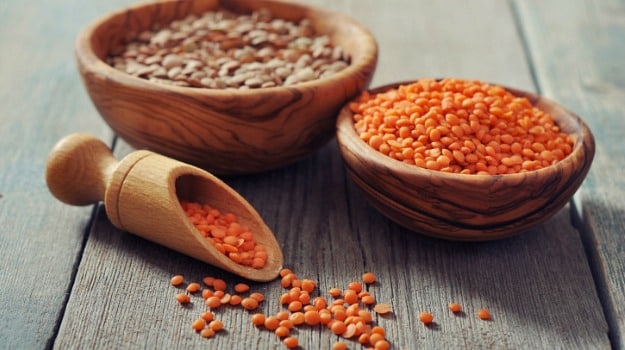Below we share a list of plant-based foods that can help boost your heart health and reduce risk of heart diseases.

Consuming a well-balanced diet is essential to good health & prevention of heart diseases
To boost overall health, it is important to consume these plant-based foods in a balanced and varied way, along with a wholesome diet that includes plenty of fruits, vegetables, whole grains, and limited processed foods. Read on as we share a list of plant-based foods that can help boost your heart health and reduce risk of heart diseases.
9 Plant-based foods that can lower risk of heart diseases:
1. Nuts and seeds
Rich in unsaturated fats, fibre, and antioxidants, nuts and seeds can help reduce bad cholesterol levels (LDL) and lower the risk of heart disease. To consume them, it is recommended to have a handful as a snack, sprinkle them on salads or cereals, or use them as ingredients in homemade granola or energy bars.
2. Whole grains
Consuming whole grains like whole wheat, oats, brown rice, and quinoa can promote heart health due to their fibre content, which aids in reducing cholesterol levels and maintaining a healthy weight. These grains can be consumed in the form of bread, pasta, rice, or as part of dishes like salads or stews.
3. Legumes
Beans, lentils, chickpeas, and other legumes are excellent sources of protein, fibre, and minerals. They can lower LDL cholesterol and reduce the risk of heart disease when consumed regularly. Legumes can be added to soups, stews, salads, or used as the main ingredient in plant-based burgers or spreads like hummus.
4. Fruits
Fruits are packed with vitamins, minerals, fibre, and antioxidants. They can help lower blood pressure, reduce inflammation, and decrease the risk of heart disease. Fruits can be consumed fresh, blended into smoothies, or added to salads, yogurt, or oatmeal.
5. Vegetables
Dark leafy greens (spinach, kale), cruciferous vegetables (broccoli, cauliflower), and other colourful veggies are abundant in antioxidants, fibre, vitamins, and minerals. They promote heart health by reducing inflammation and improving blood pressure. Vegetables can be enjoyed cooked, steamed, stir-fried, or as part of salads or soups.
6. Berries
Berries like strawberries, blueberries, raspberries, and blackberries are rich in antioxidants, fibre, and vitamins. Regular consumption of berries has been associated with a reduced risk of heart disease. Berries can be eaten fresh, added to smoothies, yogurt, or used as toppings for breakfast cereals or desserts.
7. Avocado
Avocado is a great source of heart-healthy monounsaturated fats, fibre, vitamins, and minerals. It helps lower LDL cholesterol and improves overall heart health. Avocado can be sliced and added to sandwiches or salads, mashed as guacamole, or used as a substitute for butter or mayonnaise in recipes.
8. Olive oil
Olive oil is a key component of the heart-healthy Mediterranean diet. It is rich in monounsaturated fats and contains antioxidants that lower bad cholesterol and reduce the risk of heart disease. It is best consumed as a dressing for salads, drizzled over cooked vegetables, or used for light sautéing.
9. Soy products
Foods like tofu, tempeh, edamame, and soy milk are high in plant-based protein, fibre, and isoflavones. These compounds can improve cholesterol levels and reduce the risk of heart disease. Soy products can be incorporated into stir-fries, soups, smoothies, or used as meat substitutes in various recipes.
Consulting with a healthcare professional or a registered dietitian can provide personalised guidance and recommendations based on individual needs.
Disclaimer: This content including advice provides generic information only. It is in no way a substitute for a qualified medical opinion. Always consult a specialist or your own doctor for more information. NDTV does not claim responsibility for this information.
DoctorNDTV is the one stop site for all your health needs providing the most credible health information, health news and tips with expert advice on healthy living, diet plans, informative videos etc. You can get the most relevant and accurate info you need about health problems like diabetes, cancer, pregnancy, HIV and AIDS, weight loss and many other lifestyle diseases. We have a panel of over 350 experts who help us develop content by giving their valuable inputs and bringing to us the latest in the world of healthcare.














